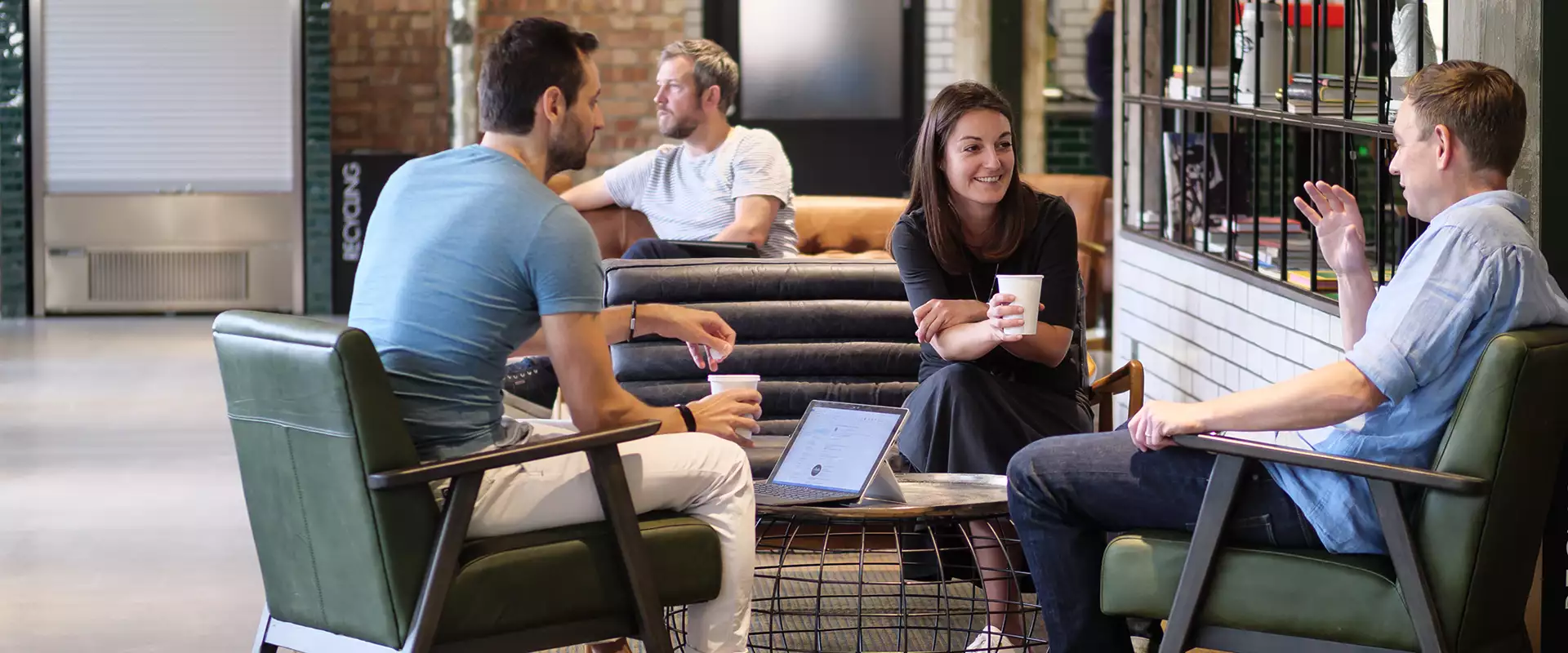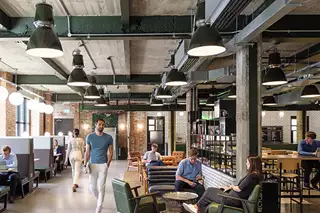
OPINION: Sustainability? It isn’t all about 'Green'
Sustainability? It isn’t all about 'Green'
Jill Poet, managing director of the Organisation for Responsible Businesses (ORB) explores a sideways view of sustainability,
Mention the word “sustainability” to most small business owners and their eyes will probably glaze over. It’s a shame that the golden glow of all that is meant by the “S” word has been tarnished; that the exciting promise of a new way of doing business has been masked by the fear of something outside our remit, something unattainable that, for the small business owner struggling to survive, is completely outside his comfort zone.
It’s a shame also that the “S” word has been hijacked by the environmental community. This is said not to negate the importance of environmental issues, but to stress that the sustainability agenda is about more than “green”.
Certainly, the concept of sustainability does bring forth challenges, but every entrepreneurial business owner knows that challenge gives rise to opportunity. Sustainability is about responsible business, and responsible business has to be profitable business otherwise it is unable to contribute socially and economically to the local and the wider community.
So what should sustainability mean to a small business owner?
A logical starting point is sustaining his or her own business. Naturally, that is the overriding priority, because sustaining their business will help to sustain their family life and that of the people they employ. Sustaining families helps sustain communities... and gradually sustainability becomes a bigger picture.
Sustaining one’s own business is about cause and effect and it really is essential to look at the bigger picture. So let’s look very briefly at some basic sustainable business practices and they can help business owners sustain their businesses.
And no – we are not starting with “green” – we are going to start with the workplace. Staff are normally a businesses’ most important asset, so attracting and maintaining the best people is clearly an essential element of being sustainable. Ethos, values and responsible business practices must start in the workplace.
There’s nothing wrong with philanthropy as long as it is a genuine addition to existing good practices, but giving money to good causes doesn’t work as a means of buying the sustainability label.
Sustaining the workforce
Small business owners typically have quite close relationships with their staff. Caring about employees, engaging with them, listening to their opinions, being appreciative of the work they do, can make so much difference. Think about it: do your staff have the training they need; do you really listen to them; do you offer bonuses and / or other incentives for a job done well? Or, quite simply, do you remember to thank them?
The best employers know only too well that good practices in the workplace result in less absenteeism, less presenteeism, and a generally more productive workforce.
Sustaining communities
The communities we live and work in have direct and indirect impacts on our lives and our businesses. Of course, a small business owner only has a limited amount of time and budget he can commit to supporting his local community, but the rewards normally outweigh the costs. “Giving back” brings a rosy glow to all those involved and helps cement those good working relationships already mentioned. It also improves a businesses’ reputation, and reputation is a key element in building a successful, sustainable business.
What can you do in your community? Could you employ an apprentice; get involved in charity events; provide mentoring services at the local college; provide your normal services on a pro bono basis for a local good cause? Maybe just provide the kit for the local football team?
Sustaining the environment
Environmental issues certainly should be a concern for every single business owner, even for the sole priority who says: “it doesn’t have anything to do with me – I can’t make any difference.” There are nearly three million one man businesses in the UK, and if each of them made a small improvement in their environmental practices it would make a big difference. It will also make a difference to their pockets, because reducing your environmental impact is, in the main, synonymous with reducing overheads.
We have all witnessed the rapidly rising cost of petrol and diesel: why not try and reduce your company mileage; arrange car sharing; use public transport; take one of the often free SAFED (safe and fuel efficient) driving courses. And please don’t use the Government as an excuse. Regardless of the amount of tax included in the cost of a litre, these prices will continue to rise. And as we are a net importer, even more important is the very real issue of fuel security. We don’t always see eye to eye with some of our biggest fuel suppliers.
We have all seen the rise in the cost of heating, lighting and ventilation. What can you do to reduce those costs? You don’t have to start with BIG actions. What about turning the temperature down a degree and wearing a jumper in winter instead of a short sleeved shirt? Did you know that one degree could reduce your bill by 8 percent?
What about reducing the amount of waste you produce? Waste costs money to collect, and you’ll also reduce the costs of some of your purchases.
Have you thought about how much water you put in the kettle when you make a cuppa? Such a little thing, but you would be amazed at how much energy you could save. Of course, this is just the tip of the iceberg. Environmental actions are well documented and, in many areas, a great deal of free support is available.
The importance here is just to stress the very obvious and yet often overlooked business benefits of sitting down and really thinking about how you can reduce your environmental footprint.
Sustaining the marketplace.
Does much need to be said here? Clearly maintaining good relationships with customers and suppliers is the very essence of good business - and suppliers can be just as important as customers – yet strangely not enough effort is given to building those relationships. Do you really know what your customers want and what they think about your business? If you need a stock of a certain product urgently, have you got a supplier who would bend over backwards to help you?
Business processes and business continuity.
What has that got to do with sustainability you might ask? Well every business, however small, has to have processes in place even if they aren’t all written down otherwise the business will not function efficiently. And what happens if a key member of staff or even the business owner is off sick? Can his position be covered? Will that new order you have just won be fulfilled on time?
Sustainability in summary
Hopefully the “S” word will no longer make you shudder, but provide you with the opportunity to think how that bigger agenda impacts on your business, your family, your community.
Hopefully the “S” word will now remind you of the opportunity you have to engage your entrepreneurial talents so that your business can be part of the solution, not part of the problem.

